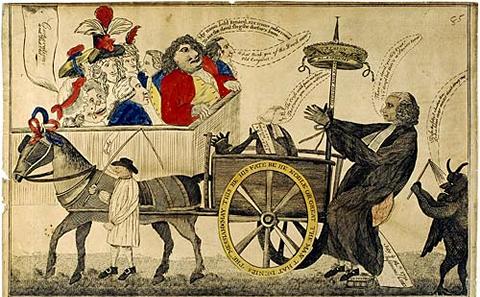Work in Progress Paper Seminar

- Time:
- 14:00 - 15:00
- Date:
- 9 March 2016
- Venue:
- Building 65b, Room 1005, Avenue Campus, University of Southampton, SO17 1BF
For more information regarding this seminar, please email Tracy Storey at tps@southampton.ac.uk .
Event details
A series of papers organised by English. This paper will be presented by Professor Stephen Bygrave.
‘Science, Religion, and the Rhetoric of Dissent: Joseph Priestley’s Enlightenment’
This talk traces some of the places I got taken - am getting taken - in pursuit of the figure in its title. Three of the big places are theology, the experimental method and the early republic of the United States. We may be embarrassed by an apparent contradiction in figures committed both to, say, the experimental method and to religious faith. One such is the Unitarian minister and natural philosopher Joseph Priestley, the friend of Jefferson and Adams, who to philosophes in the Paris salons ‘was the only person they had ever met with, of whose understanding they had any opinion, who professed to believe Christianity’ and who later claimed that ‘the only proper evidence of … God, as the author of nature, is an exhibition of something which he alone is capable of performing’. Imperatives to materialism and rational faith may not be antithetical but adducing ‘evidence’ as a criterion suggests they may fissure a language for the numinous in ways more typical of the propositional scepticism of literary language.
Priestley worked within lots of discourses - and also published an aesthetics – but he is not literary so much as anti-literary (in the way Tom Paulin has talked of a ‘Protestant anti-aesthetic’). Priestley writes a language outwardly directed at collaborative rational inquiry and inwardly fissured by the incompatibility of faith with the kinds of proof that his experimental work demanded, taking up the compatibility or otherwise of theology with metaphysics and natural philosophy.
What this project began from, however, was investigating the spectacular evidence of the fear of religious dissent when in July 1791, on the second anniversary of the fall of the Bastille, Priestley’s home, laboratory and manuscripts were destroyed along with twenty-six other houses and four Dissenters’ meeting houses in Birmingham, attacks which he saw as motivated by religious hatred. The establishment of the Church of England entailed a political position for religious dissenters, who might share common ground with Jews and Catholics as well as co-religionists in the American colonies. Priestley – a controversialist but no politician - could show his audiences the workings of natural phenomena which were superior to manifestations of temporal authority, declaring, in a much-quoted phrase that ‘the English hierarchy has equal reason to tremble at an air pump or an electrical machine.’ He claims that the same principle actuates the political as the theological work.
Speaker information
Professor Stephen Bygrave,Professor of English